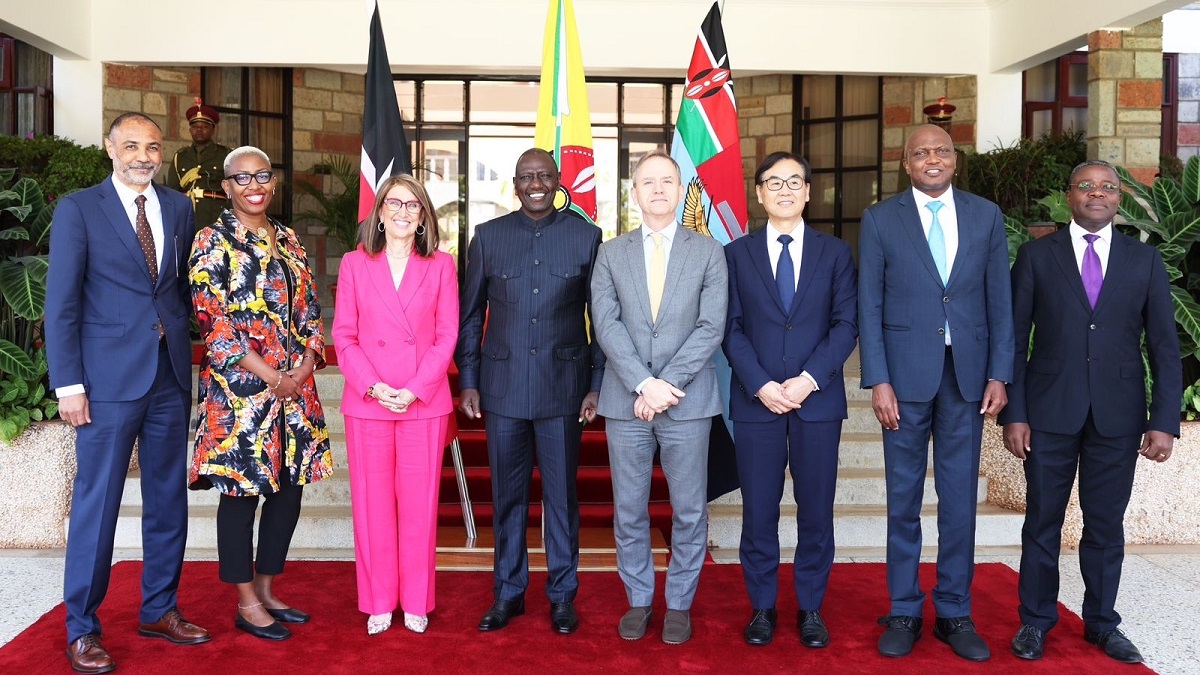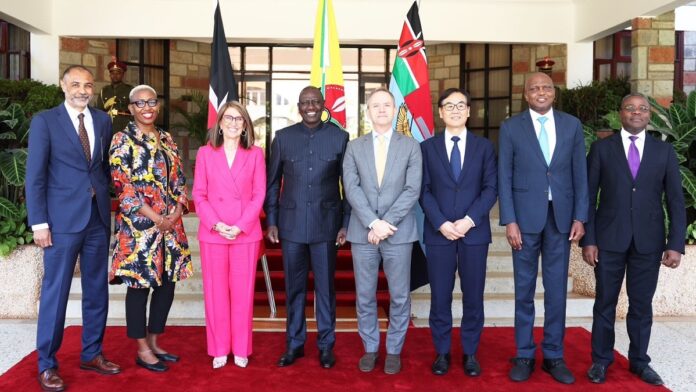By Roseleen Nzioka
Nairobi, Kenya: African countries should secure better mining contracts and exploration licenses for metals used in high-tech products and supply chains, the United Nations Conference on Trade and Development (UNCTAD) said in its Economic Development in Africa Report 2023 launched this week in Nairobi, Kenya.
UNCTAD said this would strengthen domestic industries, enabling local firms to design, procure, manufacture, and supply the necessary components.
The adoption of innovative digital technologies is also critical to optimizing supply chain processes. Countries such as Kenya have made notable progress in this realm, with rising rates of digital skills adoption in Africa, the report notes.
The report says that African economies can become major participants in global supply chains by harnessing their vast resources of materials needed by high-technology sectors and their own growing consumer markets.
The UNCTAD report, entitled “The Potential of Africa to Capture Technology-intensive Global Supply Chains“, examines how African economies can become major participants in global supply chains which encompass “the systems and resources needed to develop, produce, and transport goods and services from suppliers to customers.”
“This is Africa’s moment to bolster its position in global supply chains as diversification efforts continue. It’s also an opportunity for the continent to strengthen its emerging industries, foster economic growth and create jobs for millions of its people,” UNCTAD Secretary-General Rebeca Grynspan said at the launch of the report.
Africa’s abundance of critical minerals and metals, including aluminum, cobalt, copper, lithium and manganese, vital components in technology-intensive industries, positions the continent as an attractive destination for manufacturing, as recent upheavals caused by trade turbulence, geopolitical events and economic uncertainty compel manufacturers to diversify their production locations.
Africa also offers advantages such as shorter and simpler access to primary inputs, a younger, technology-aware, and adaptable labour force and a burgeoning middle class, known for its growing demand for more sophisticated goods and services, the report states.
Deeper integration into global supply chains would also diversify African economies, boosting their resilience to future shocks.
UNCTAD notes that expanding energy supply chains into Africa is also an opportunity to accelerate climate action. The continent’s vast renewable energy potential, particularly in solar power, can help reduce production costs and decrease reliance on fossil fuel-based energy sources.

The report further says that Africa needs more investment in renewable energy to help bridge the significant investment gap and tackle other obstacles to the manufacturing of solar panels on the continent.
“Currently, only about 2% of global investments in renewable energy go to Africa. The growth of investment in renewable energy, could promote the manufacturing of solar panels on the continent”, said UNCTAD.
UNCTAD urges governments to create sound policies, foster an enabling regulatory environment and scale up programmes to promote the widespread adoption of these technologies.
The UN trade and development body also reiterates its call for better financing solutions to offer African countries and businesses affordable capital and liquidity to invest in strengthening their supply chains.
The report says African small and medium-sized enterprises need more supply chain finance, which bridges the payment time gap between buyers and sellers, improves access to working capital and reduces financial strain.
“The value of the African supply chain finance market rose by 40% between 2021 and 2022, reaching $41 billion. But this is not enough,” said Ms. Grynspan.
“The continent can mobilize more funds by removing barriers to supply chain finance, including regulatory challenges, high-risk perception, and insufficient credit information,” said the UNCTAD boss.
UNCTAD also underlines the need for debt relief to offer African countries fiscal space to invest in strengthening their supply chains noting that on average African countries pay four times more for borrowing than the United States and eight times more than European economies.
“So, for the same risk profile, African countries pay much more for their loans and for their debt than the rest of the developed world. And this must change if Africa is really to achieve its full economic potential and be a major actor in global supply chains,” said Ms. Grynspan.
The UNCTAD boss noted that developing countries have been hit hard by the cascading crisis; COVID-19, climate change, and the drought especially in the Horn of Africa, exacerbated by the war in Ukraine with food prices and inflation going up, severely affecting the most vulnerable populations.
Kenya’s President William Ruto lauded the role played by UNCTAD in helping address structural challenges inherent in developing countries adding that the challenges hinder the pursuit of inclusive, resilient, fair, equitable and sustainable development.
The Head of State made the remarks on Tuesday, at the Eldoret State Lodge, Uasin Gishu County, when he held talks with the UNCTAD Secretary-General Rebeca Grynspan, a day ahead of the launch of the UNCTAD report.
President Ruto who was flanked by Industry, Trade and Investment Cabinet Secretary Moses Kuria commended UNCTAD for choosing Kenya as the venue for the launch of the flagship report.
President Ruto noted that the launch provides an excellent opportunity for Kenya to amplify its voice on the ongoing efforts around inclusive, fair and sustainable development.
“We strongly believe that UNCTAD is a strategic partner for Kenya not only in providing support under its three pillars of consensus building, research and policy analysis and technical assistance but also in onboarding other development stakeholders so that we achieve as one,” said President Ruto.














